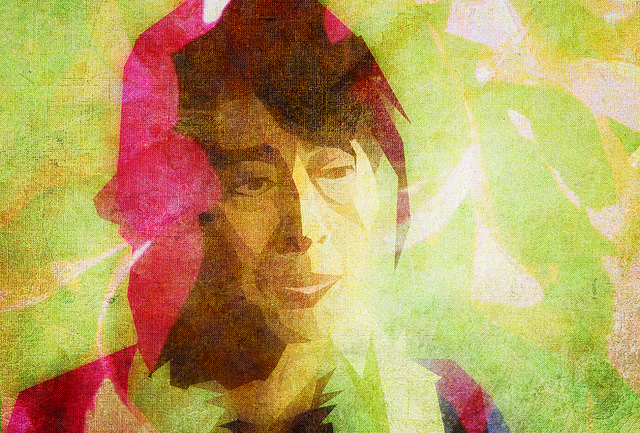
The first civilian government in Myanmar took its seats in the Union Parliament in its capital of Naypyidaw on 1 April after 54 years of military rule. The National League for Democracy, chaired by Aung San Suu Kyi, secured a historic majority in the November 2015 election, sitting among a parliament scattered with small ethnic political parties and an opposition party filled with retired generals, all throwbacks to an earlier era of rule. Despite these obstacles, Suu Kyi has nonetheless clinched key political posts in the new government, including the newly created ‘State Counsellor of Myanmar‘, minister in the President’s office, and foreign minister, placing her in the influential National Defence and Security Council, which retains the ominous authority to dissolve parliament and impose martial law. She has her proxy, U Htin Kyaw in place as President.
Myanmar’s political progress is a positive story in the region. Its neighbour Thailand has fallen from constitutional monarchy back into a military junta. And nearby Malaysia’s democracy has been exposed as a kleptocracy on a grand scale. Among its CLMV comrades, Cambodia remains under a strongman while Laos and Vietnam continue as one-party states despite significant economic reforms in the latter. Myanmar’s progress presents an opportunity for western countries like Australia and the United States to re-engage with ASEAN’s fifth most populous country—a goal made more important based on Myanmar’s significant role in Indo–Pacific geopolitics. China sees Myanmar as a shortcut for its oil and gas supplies, avoiding the precarious Malacca Strait, and has an interest in the resolution of Myanmar’s ethnic conflicts which threaten stability on their shared border.
Myanmar’s progression towards democracy has had positive ripple effects. For one, the American business community has renewed pressure on the US government to eliminate its existing sanctions on Myanmar, finishing a process of easing launched by US President Barack Obama in 2012 in response to the outgoing government’s reforms under former general Thein Sein. Also in 2012, Australia lifted its targeted financial sanctions and travel bans against Myanmar while maintaining its arms embargo.
But optimism for the country should be tempered by considering how Myanmar’s 2008 constitution could continue to hold it back. Suu Kyi is still ineligible to serve as president under an article custom-designed to keep her from doing so. The constitution is still structured so that the army maintains significant influence over politics. Top cabinet positions in the three influential ministries of defence, home affairs, and border affairs are held for appointment by the commander-in-chief of the army—and their appointees aren’t required to resign or retire from the army like their civil service counterparts. Matters of defence affairs and policy are conveniently shielded from legislative review. In the Union Parliament, 25% of the seats in the upper and lower houses are reserved for the military. On top of the problems those articles present for reformers aiming to make meaningful steps toward democracy, they’re also the exact sections of the constitution enumerated in Chapter 12 which can only be amended by the approval of 75% of Parliament.
That said the past evolution of another Southeast Asian nation might herald some hints for its future. The role of the Myanmar Army in politics closely resembles the case of Indonesia during Suharto’s New Order era. Much like Myanmar, the dual function doctrine of the Indonesian Army’s political role saw the placement of enough military and presidential appointees in Indonesia’s legislature to block constitutional amendment. Army officers were given some of the top civil service posts. In Indonesia’s case however, the Army’s involvement in politics was implied in their 1945 Constitution, not codified in articles of law like Myanmar’s. And during the era of dual function, Suharto’s Golkar party always won elections outright without ever finding themselves in the position Myanmar’s retired generals do now. The dual function doctrine eventually faded away, along with the New Order, after Suharto stepped down. In 2004, the Army’s appointed seats in the legislature were phased out.
In some ways, Myanmar’s current state mirrors some of Indonesia’s democratic progress in 1997. It’s still up to the Myanmar Army to decide how liberal the country will become. And the Army will likely not give up that power so easily—its control over lawmaking and policy covers a multitude of sins. Shielding themselves from prosecution, generals implicated in war crimes throughout Myanmar’s history of bloody ethnic conflict is one layer of self-interest that sustains the Army’s firm grip on politics. Another is their corrupt involvement in many of the country’s industries.
Myanmar will provide another case study for a Southeast Asian country’s transition from military rule to democracy. The Army’s hand in all things political will likely continue to frustrate open engagement of western democracies wanting to normalise relations with Myanmar. And, as in Indonesia, the Army’s long involvement in political affairs will continue to echo into Myanmar’s future: the generals have rare and valuable experience in governing.

